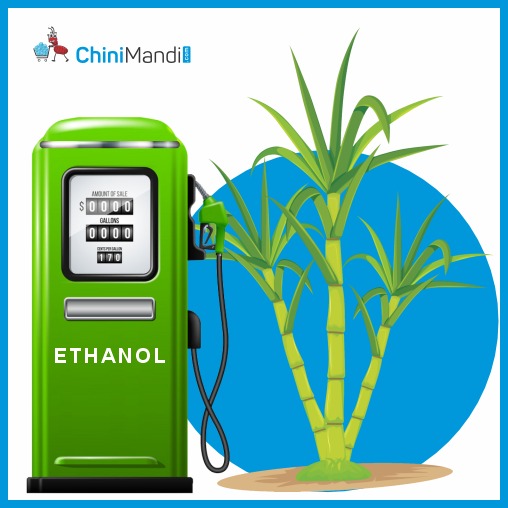Ethanol is a promising solution to combat climate change as it is considered a cleaner energy source than conventional fossil fuels. However, ensuring its sustainability comes with a number of obstacles and opportunities.
The difficulties in producing sustainable ethanol start with the reliance on sugarcane. The industry relies heavily on sugarcane, particularly sugarcane molasses, as the main source for ethanol production. Unfortunately, this dependence makes the entire industry vulnerable to natural disasters, pest infestations, and extreme weather conditions. These events can disrupt ethanol supply chains, leading to supply shortages, higher prices, and environmental impacts.
Another major challenge is changes in land use and food security. The production processes require a large amount of land. Sugar cane fields often flood areas intended for food crops, which could lead to environmental food crises. This aspect could threaten food security, especially in areas where there is already a shortage of arable land.
The environmental footprint of traditional ethanol production is another potential challenge. The cultivation of sugarcane requires a lot of fresh water and can exacerbate water scarcity problems in areas already suffering from water shortages. The excessive use of fertilizers can also lead to nitrate pollution. These nutrients enter the water, contaminate the supply and pose a threat to aquatic ecosystems. Although ethanol emits fewer greenhouse gases than fossil fuels, emissions from agricultural practices and land use change can outweigh the environmental benefits of ethanol. Therefore, alternative solutions are needed to address the environmental impacts of ethanol production.
Fortunately, there are ways to overcome these challenges. Diversification of feedstocks is the most important step. There are alternative feedstocks (2nd generation feedstock) for ethanol production, such as cellulosic biomass (bagasse, Bamboo, wood French fries, crop residues, and switchgrass) and waste materials such as food or municipal solid waste. Adopting sustainable agricultural practices such as no-till farming can reduce soil disturbance and improve soil health, leading to better water retention. In addition, the use of sensor technology for better irrigation can optimize water use, and reducing reliance on hazardous pesticides by promoting pesticides and insecticides are effective methods of pest control.
Advanced biorefineries can provide a sustainable and financially feasible solution by converting a wider range of biomass sources into various biofuels and bioproducts. Technological advances also play an important role in the production of cellulosic ethanol. State-of-the-art fermentation processes can lead to higher ethanol yields and lower production costs. The integration of renewable energies such as solar or wind energy into ethanol production plants can also reduce dependence on fossil fuels.
To create an enabling framework, government incentives and cutting-edge technologies require a broader range of feedstocks, and policy makers should support sustainable agricultural and biofuel production practices. Carbon pricing schemes can promote the use of low-carbon biofuels such as ethanol and improve competitiveness against conventional fuels. Economic viability is another factor to consider. The cost of producing substitute feedstocks and the price of sugarcane could have a significant impact on economic sustainability. Integrating ethanol production with the bioproduction of potash, bio-CNG or other bioproducts can increase economic resilience and diversify revenue streams. In addition, a comprehensive life cycle assessment (LCA) helps determine whether ethanol production is sustainable by considering the social, economic and environmental impacts.
In summary, all stakeholders must work together, steadfastly commit to responsible practices and continuously innovate to complete the journey to sustainable ethanol production. Policy makers need to develop market mechanisms and policies that support sustainable practices and innovative technologies. Industry players should invest in cutting-edge technology and adopt sustainable practices. Researchers must look for effective conversion processes and new sources of raw materials while promoting sustainable practices. Consumers should make informed choices and opt for sustainable practices. Ethanol is a promising solution to mitigate climate change. By removing barriers, capitalizing on opportunities, and promoting mutual cooperation, we can achieve sustainable ethanol production and unlock a future where ethanol is an important part of a greener energy landscape.
Finally, it is important to emphasize that creating a sustainable future for ethanol production requires collaboration and innovation from all stakeholders. Policy makers, industry, researchers, and consumers must work together seamlessly to ensure that innovation and change have a positive impact. One way to ensure that all stakeholders work together effectively is to create an enabling framework that fosters cooperation and innovation.
Disclaimer: The views and opinions expressed in the article by Dilip Patil, Managing Director of Samarth SSK Ltd., are solely his own.












